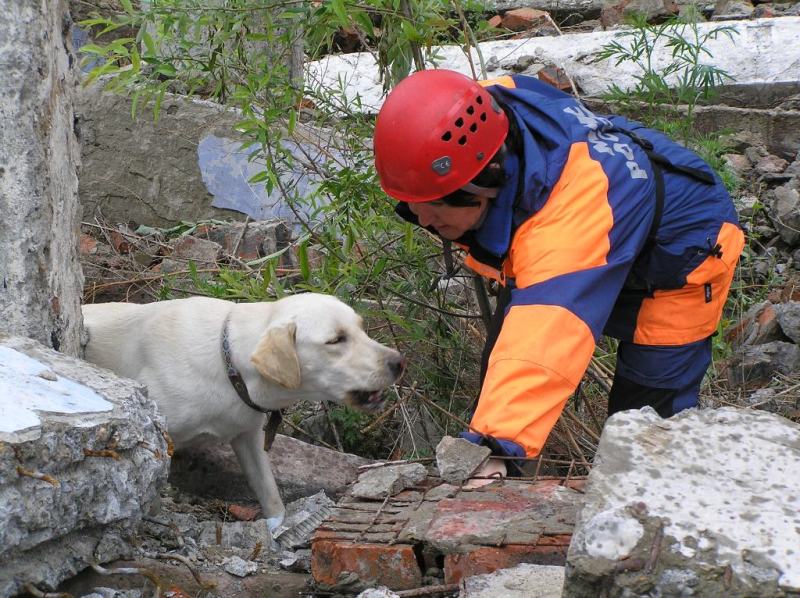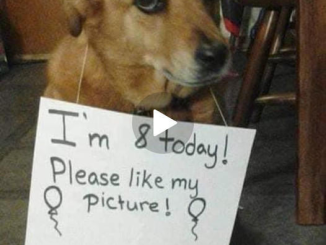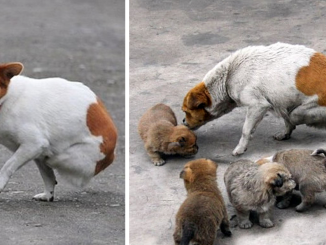
In the impoverished Gaza Strip, where most people struggle to make ends meet amid a crippling blockade, the suffering of stray dogs and cats often goes unnoticed.
Said el-Er, who founded the territory’s only animal rescue organisation in 2006, has been trying to change that. He and other volunteers rescue dogs and cats that have been struck by cars or abused and nurse them back to health – but there are too many.
So in recent weeks they have launched Gaza’s first spay-and-neuter programme. It goes against taboos in the conservative Palestinian territory, where feral dogs and cats are widely seen as pests and many view spaying and neutering as forbidden by Islam.
“Because the society is Muslim, they talk about halal (allowed) and haram (forbidden),” Mr El-Er said. “We know what halal is and what haram is, and it’s haram (for the animals) to be widespread in the streets where they can be run over, shot or poisoned.”
Islam teaches kindness towards animals, but Muslim scholars are divided on whether spaying and neutering causes harm. Across the Arab world, dogs are widely shunned as unclean and potentially dangerous, and cats do not fare much better.
Mr El-Er and other advocates for the humane treatment of animals face an added challenge in Gaza, which has been under an Israeli and Egyptian blockade since the Islamic militant group Hamas seized power in 2007. Gaza’s two million residents suffer from nearly 50 per cent unemployment, frequent power outages and heavy travel restrictions.
With many struggling to meet basic needs, animal care is seen as a waste of precious resources or a luxury at best. Mr El-Er’s group, Sulala for Animal Care, relies on private donations, which can be hard to come by.
Mr El-Er says his team can no longer keep up with the number of injured animals that they find or that are brought to the clinic. “The large number of daily injuries is beyond our capacity,” he said. “That’s why we resorted to neutering.”
On a recent day, volunteers neutered a street dog and two cats that had been brought in. There are few veterinary clinics and no animal hospitals in Gaza, so they performed the operations in a section of a pet store that had been cleaned and disinfected.
“We have shortages in capabilities, tools, especially those needed for orthopaedic surgeries,” said Bashar Shehada, a local veterinarian. “There is no suitable place for operations.”
Mr El-Er has spent years trying to organise a spay and neutering campaign but met with resistance from local authorities and vets, who said it was forbidden. He eventually secured a fatwa, or religious ruling, stating that it is more humane to spay and neuter animals than to consign an ever-growing population to misery and abuse.
Once the fatwa was issued, Mr El-Er said local authorities did not object to the campaign as a way of promoting public health and safety. The Hamas-run health and agriculture ministries allowed veterinarians to carry out operations and purchase supplies and medicine, he said.
The Gaza City municipality provided land for a shelter earlier this year. Before that, Mr El-Er kept the rescued animals at his home and on two small tracts of land that he leased.
The new shelter currently houses around 200 dogs, many of them blind, bearing scars from abuse or missing limbs from being hit by cars. At least one was adjusting to walking with a prosthetic limb. A separate section holds cats in similar shape.
The group tries to find homes for the animals, but here too it faces both economic and cultural challenges. Very few Gazans would keep a dog as a pet, and there’s little demand for cats. Some people adopt the animals from abroad, sending money for their food and care.
Over the past decade, international animal welfare groups have carried out numerous missions to evacuate anguished animals from makeshift zoos in Gaza and relocate them to sanctuaries in the West Bank, Jordan and Africa.
But there are no similar campaigns for dogs and cats, and Gaza has been sealed off from all but returning residents since March to prevent a coronavirus outbreak.
Mr El-Er’s phone rang recently and the caller said a dog had been hit by a car. Volunteers from Sulala brought it back to the shelter on the back of a three-wheeled motorbike and began treating it. Mr El-Er says they receive around five such calls every day.
A Shivering Pup’s Second Chance: The Riveting Water Tunnel Rescue

On the fateful day of July 11, an emotional rollercoaster unfolded, triggering a rapid response from both firefighters and dedicated RSPCA personnel. Their mission? To rescue a distressed dog from a perilous situation that sent shockwaves through the community.
The clock struck 2:45 PM when these heroes arrived on the scene, their hearts resolute to save the helpless pup.
Trapped and frightened, the dog had no means to break free, but the arrival of these devoted rescuers signaled a glimmer of hope in the midst of despair. Their meticulous efforts would pave the way for the triumphant liberation of the trembling canine, offering it the warmth and care it craved.

The rescue operation was a true spectacle, featuring a symphony of ladders, teamwork, and unwavering determination. These courageous souls worked tirelessly until the shivering dog was finally set free from its harrowing ordeal. Following this remarkable rescue, the dog found itself in the loving care of the Woodside RSPCA Animal Centre, where plans were set in motion to reunite the pup with its rightful owner.

As the firefighters and RSPCA heroes arrived at the scene, their hearts sank at the sight that greeted them—a weary, shivering dog submerged in the frigid waters of the culvert. It was evident that this loyal companion had endured an agonizing ordeal for far too long.
With the tender care and support provided by the Woodside RSPCA Animal Centre and the Leicestershire Fire and Rescue Service Loughborough Station, the dog was extracted from its dire predicament with utmost care and precision, immediately wrapped in warmth and comfort.
The Castle Donington Fire Station shared their feelings about the rescue, saying, “When we reached the scene, our hearts sank as we found the dog shivering in the cold water running through the culvert. It was clear that the poor pup had been there for quite some time. So with immense care and help from the Woodside RSPCA Animal Centre and Leicestershire Fire and Rescue Service Loughborough Station, we carefully extricated the dog from the culvert, providing immediate comfort and warmth. With RSPCA assistance, we made sure that this brave little soul was reunited with its owner.”

The intense rescue mission reached its conclusion around 3:20 PM, as confirmed by the Leicestershire Fire and Rescue Service.
This incident carries a poignant message for all dog owners, serving as a reminder to exercise caution when their beloved pets are in the vicinity of water bodies. The Castle Donington Fire Station underscored the importance of pet microchipping and discouraged individuals from venturing into the water to rescue their pets. Instead, they encouraged people to reach out to emergency services for assistance.
The touching rescue of the shivering dog from the water tunnel is a testament to the unwavering dedication and compassion of those who labored relentlessly to ensure the safety and well-being of this four-legged friend.



Leave a Reply